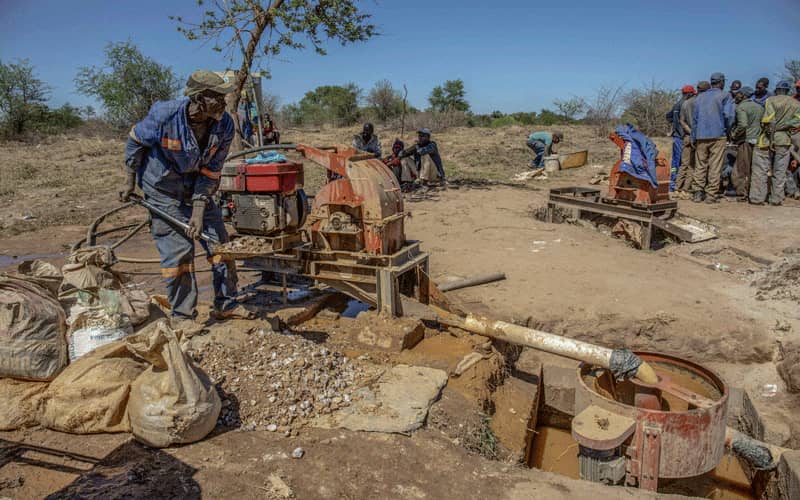Innocent Sibonginkosi Ncube
Illegal gold mining has taken over some suburbs in Bulawayo, causing severe land degradation and posing a threat to residents’ safety.
Despite efforts by law enforcement to clamp down on the activity, gold panners continue to operate, ignoring environmental and mining regulations.
“We’re concerned for our safety,” said Granny MaSithole from Queens Park East.
MaSithole’s house is found on Longford Road.
“It started with these panners invading the forest after the rail line on Upton Road. Then they claimed that the ‘belt’ passes through our houses.”
MaSithole went on to narrate that later, she heard strange vibrating sounds coming from her neighbor. She went on to learn that the neighbour was digging for gold inside his yard.
“We reported to the City Council, but nothing happened. They say the neighbour belongs to the party.” Masithole nearly whispered.
The digging and at times underground blasting continued causing serious cracks to their houses.
A resident on Upton Road, who gave his name as Sigidi said,
“The gold panners have been here for sometime now and have devised ways of evading raids by the police. They work only at night and disappear at sunrise.”
The gold panners have dug extensive trenches and holes stretching right towards Mahatshula and Emhlangeni, causing damage to the land and posing a risk to nearby homes.
“At the rate these guys are digging, one day floods of muddy water will flow into our homes when heavy rains hit this part of the city,”
Complained Sigidi.
In Killarney suburb, gold panners were found working with equipment such as compressors, picks, and shovels.
“Gold buyers come every morning to purchase the precious mineral,” said one panner.
The Killarney squatter is headed by a village head, who claimed some of the gold panners are minors who grew up in the camp. They follow rules given to them by elders from the illegal camp.
“We don’t tolerate violence here, so those who come from other areas know they are here to work and not cause trouble,” he said refusing with his name.
Bulawayo Provincial Police spokesman, Inspector Abednico Ncube, said police conduct raids based on intelligence reports and information from concerned residents.
“We have our own systems in place, such as intelligence gathering combined with information supplied by residents, which we then use to plan and conduct raids,” he said.
Contacted for comment, Zimbabwe Miners Federation Chief Executive Officer, Wellington Takavarasha said mining should be at least 1km away from residential areas.
“A blasting license clearly stipulates that a mine must be at least 1km or more away from the nearest human settlements,” he said.
He went on to say that, it is difficult to control gold panners as they are not licensed and most times they are rowdy and operate clandestinely.
Residents and farmers have expressed concerns about the impact of illegal gold mining on their safety, properties, and agricultural activities.
In April, farmers in Kensington accused a local gold miner of disrupting their activities and causing water shortages.
Recently, the Bulawayo City Council complained about gold panning that is ongoing at dams that supply the City with water. At one point there was a scare to the effect that the City’s water was contaminated with cyanide.
The claims were refuted as false.
A comment from the Environment Management Agency, EMA, was not forthcoming at time of publication.
Zim GBC News©2024


